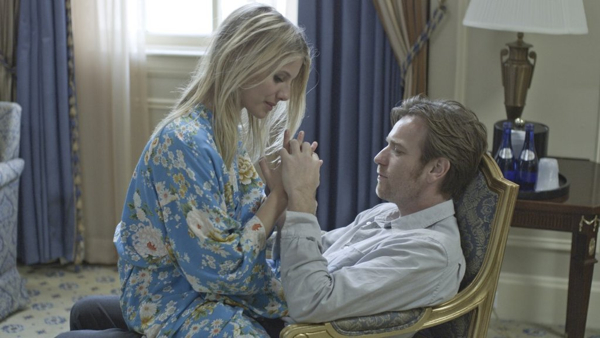Movie review by Greg Carlson
“Beginners,” writer-director-designer-
Ewan McGregor plays Oliver, an illustrator/graphic designer reflecting deeply on life and love in the wake of losing papa Hal (Christopher Plummer) just a few short years after the death of Oliver’s mom Georgia (Mary Page Keller), Hal’s spouse of 44 years. Before his decline, the aging Hal – who waited until his wife lost her own cancer battle – announces his homosexuality at age 75, and Mills uses the premise to advantage with a series of montages outlining the challenges, disappointments, and heartaches faced by the closeted during the second half of the twentieth century. The stylishly presented images, punctuated by Oliver’s narration (“This is what the sun looks like”) bridge past and present, providing information that invites the viewer into Oliver’s interior space.
Oliver, who is given to episodes of melancholia, joins a group of friends at a costume party and meets the enchanting Anna (Melanie Laurent), whose laryngitis relegates communication to scribbles in a notepad and a range of intimate, eye-contact dependent non-verbals. Amusingly attired as Freud, Oliver “treats” patient Anna while Mills takes the opportunity to comment coyly on the therapeutic possibilities of fresh attraction. Later, as Oliver and Anna bond, they begin to talk about their parents, and even though the film’s point of view firmly belongs to Oliver, Anna emerges as something more substantive than Nathan Rabin’s dreaded, static Manic Pixie Dream Girl stereotype (despite her ability to roller skate).
Mills is graced with a trio of appealing performers, and even though “Beginners” is Oliver’s story, both Hal and Anna bloom into vibrant characters in no small measure through the choices of their portrayers. Plummer, Laurent, and McGregor all find the room in Mills’ screenplay to reveal the less-attractive corners and contours of personality common to us all, and “Beginners” is richer for its prickles and barbs. At one point, Oliver says, “Our good fortune allowed us to feel a sadness our parents didn’t have time for.” At first, the sentiment sounds like self-pity, but Mills positions the thought so that Oliver recognizes Hal’s decades-long personal sacrifices instead.
Without the intensity of Charlie Kaufman and Michel Gondry’s surrealist science fiction gamesmanship, “Beginners” addresses some of the very same emotional terrain as the masterful “Eternal Sunshine of the Spotless Mind.” Both movies are actively engaged with the dizzying fear that comes with the realization that what we have can be quickly lost, sometimes through our own foolish tendencies toward self-destruction. Both movies also recognize and explore the interlocking past, present, and future – and do so in ways that conjure up the Jungian “unus mundus” of meaningful coincidences through powerful serendipities that mark endings, beginnings, and the journey in between.
